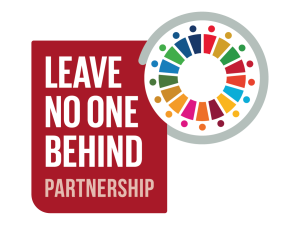05 October 2020
As many countries cautiously reopen their economies and people start to envision life after the pandemic, it is time to begin assessing the virus’ long-term impacts, and plan how to respond. A new commentary series from the Leave No One Behind Partnership aims to make voices heard and count.
In July 2020, the UN High-level Political Forum on Sustainable Development (HLPF) conducted its annual review of global progress towards the Sustainable Development Goals (SDGs). The discussions were framed by an idea set out by the UN Secretary-General as he opened the meeting: “The COVID-19 crisis is having devastating impacts because of our past and present failures, because we have yet to take the SDGs seriously.”
Because it worsens inequalities, COVID-19 has already had a devastating impact on the world’s most disadvantaged groups, including the poorest, women, the elderly and youth, migrants, Indigenous peoples, and people with disabilities. This is both a reflection of the lack of progress on the SDGs up until the time COVID-19 emerged, and a hindrance to future achievement of the Goals.
The next months will be critical to help those hit hardest and ensure countries get back on track to reducing poverty and addressing the old and new needs of people at risk of being left behind.
IISD and partners are launching a series of articles to explore this challenge. We will interview experts on the front lines of efforts to leave no one behind about their expectations for the world after COVID-19, as well as data experts and development practitioners. Policy briefs, interviews, and guest articles will share their experiences, examine the countries and people most affected, and uncover what can be done to rebuild lives and make progress toward the SDGs. We will dedicate space to the people who are at risk of being left behind – or newly poor or otherwise vulnerable – regarding what interventions they think are most needed.
Commentary will delve into three broad themes:
- Current Knowledge of COVID-19 and its Long-Term Impacts: The series features stories about the impacts of continued physical distancing around the world and how COVID-19 is magnifying inequality in different and intersecting ways.
- Green Shoots and Measures that Work: Experts including front-line respondents, community organizations, and policymakers have made enormous efforts to design equitable and sustainable recovery interventions. This series will include success stories of recovery interventions that also address social and ecological sustainability, social protection, and support for community-based solutions.
- The Promise and Risk of Data for Leaving No One Behind: To begin to understand how the pandemic affects marginalized groups, good data are crucial. The series will include stories about data needs and gaps, community-driven efforts to collect data, and the role of national statistical offices to track progress through the pandemic.
This article will be cross-posted at the global SDG Knowledge Hub of IISD as part of a series of publications from the Leave No One Behind partnership.








